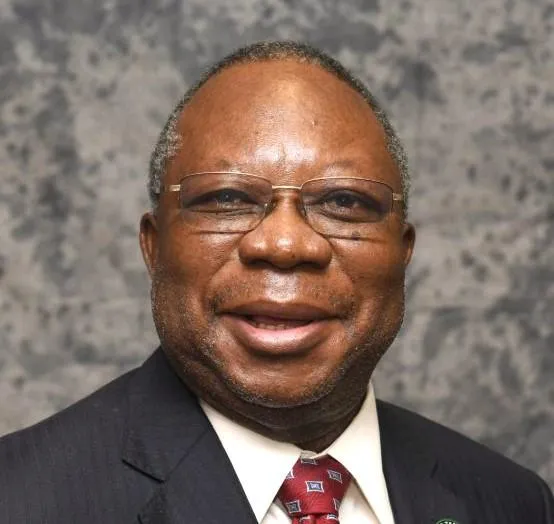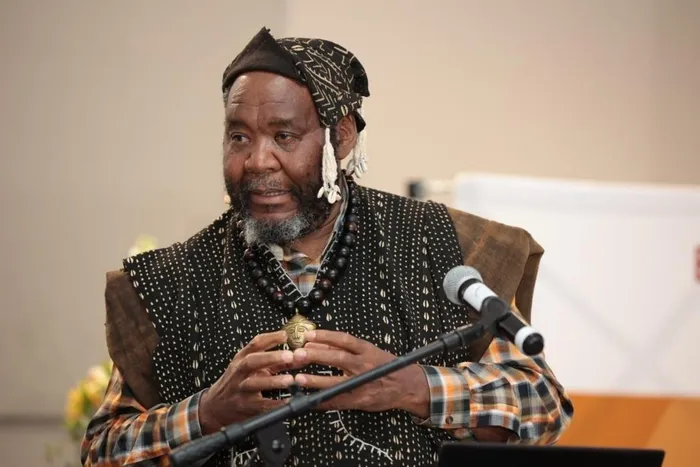RIP Ambassador Mahalngu: Reflecting on Pixley ka Seme's legacy

Ambassador Mniwa Mahalngu has passed.
Image: Supplied
At times like this we have to ask, "What would ka Seme advise?" Ambassador Mniwa Mahalngu is no more. I met him in February this year and we exchanged pleasantaries. I will remember him always for agreeing to deliver a Prixley ka Isaka Seme lecture at the University of Columbia that Francoir Ndengwe and I arranged in 2016.
This was 110 years since Prixley made a remarkable and unforgettable speech about the regeneration of Africa. It is befitting to publish the speech as tribute to Ambassador Mahlangu. He reminds us that precisely in the month of April 2016, marked 110 years since the famous and celebrated speech entitled The Regeneration of Africa by a renowned son of Africa, Pixley ka Isaka Seme.
The speech was delivered on 5 April 1906, at the University of Columbia, in the United States. Seme, like many other sons and daughters of Africa, had gone to the US, and to the United Kingdom, in search of better opportunities for education and in search of global enlightenment.
As the geopolitics of our time take shape Mahlangu reminded us that all over Africa the indigenous people under the dehumanising yoke of colonial masters were denied meaningful education. A few were allowed meagre education that was meant to make them perform menial task under the directives of the colonial masters as well as extend the colonial influence to the rest of their people. Seme came from a different generation altogether. His generation had refused to be academically and intellectually dominated.
This generation was that of young men and women who had gone to acquire formal education in the West and sought to use such education to excel in their endeavours as well as deploying such education to agitate for the end of colonialism. This defined the character of who Seme was throughout his life.
The common destiny for Africans was, and continues to be, to shake off the yoke of control imposed upon them. To control any group of people, the colonizer required both coercive and consensual elements. The coercive element had taken the form of brutal and violent wars. The consensual element took the process of distributing, internalising and assimilating the values of the colonizer in the form culture, language and education. It is on the consensual element that Seme sought Africa to assert herself to fulfil the quest for a common destiny of her people.
Africa lost many battles of dominance. In the end, a hegemonic triumph of the falsehood of colonial dominance over Africa had to be challenged through other avenues than the battlefields. The war was taken to other levels of engagement, including that of intellect. Many sons and daughters of Africa did not fall short in the war of ideas. So is Pixley ka Seme. He understood that discourse, hegemony and ideology are intertwined. Seme’s speech, on 5 April 1906, at the Columbia University captures his hopes for Africa. He said:
“The African already recognizes his anomalous position and desires a change. The brighter day is rising upon Africa. The brighter day is rising upon Africa… Yes, the regeneration of Africa belongs to this new and powerful period! By this term regeneration I wish to be understood to mean the entrance into a new life, embracing the diverse phases of a higher, complex existence.… The African people, although not a strictly homogeneous race, possess a common fundamental sentiment which is everywhere manifest, crystallizing itself into one common controlling idea… The regeneration of Africa means that a new and unique civilization is soon to be added to the world.”
Seme understood the unfairness and attendant dangers of being divided along racial lines. Colonialism, and later apartheid in South Africa, did not fit with his thinking. It is through the ideas of Seme and others on the African continent that Africa shook off the shackles of colonial bondage. The sentiments of his 1906 speech remain a lot more valid today, 110 years on. Any nation that regenerates itself to enter the world stage offers a unique civilisation. We have seen it with the Greek, Roman civilizations in ancient times. The world further witnessed the Renaissance of Northern Europe that started with the cultural movement in Italy in the late medieval period and spread to the rest of Europe during the middle ages to modern times. The regeneration of Africa has thus occupied post-colonial African leaders as has been witnessed through many initiatives. Africa’s Agenda 2063 as led by the African Union is the present case in point.
Mahalngu as he departs asks us the question what would have Pixley ka Seme said and done as South Africa sits painfully on an unenviable cross roads at 126 years since the seminal speech by Seme. Let Seme and Mahlangu shed light on our darkest moment in our transition since 1994 so that we can see better, learn better and act honourably.

Dr Pali Lehohla is a Professor of Practice at the University of Johannesburg, among other hats.
Image: Supplied
Dr Pali Lehohla is the director of the Economic Modelling Academy, a Professor of Practice at the University of Johannesburg, a Research Associate at Oxford University, and a distinguished Alumni of the University of Ghana. He is the former Statistician-General of South Africa.
*** The views expressed here do not necessarily represent those of Independent Media or IOL
BUSINESS REPORT